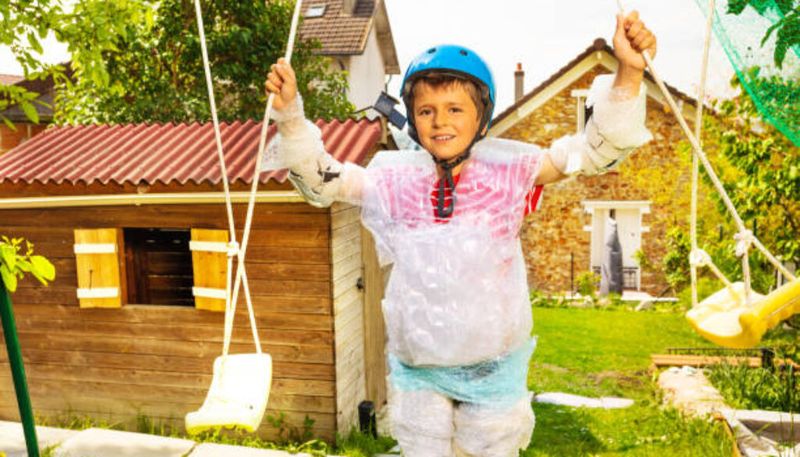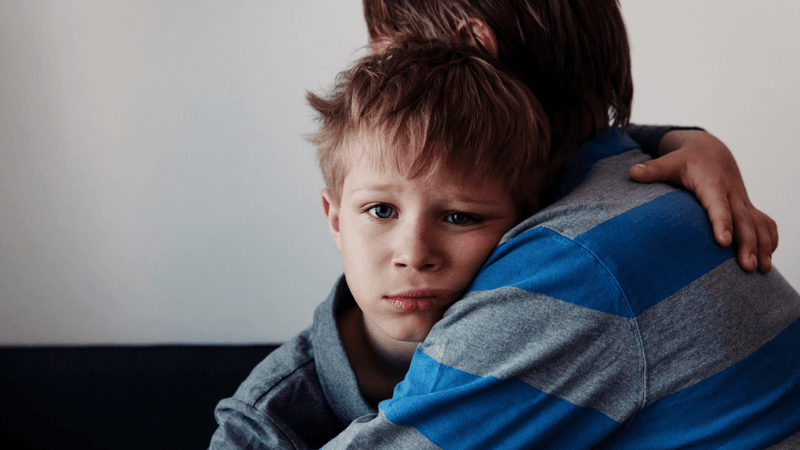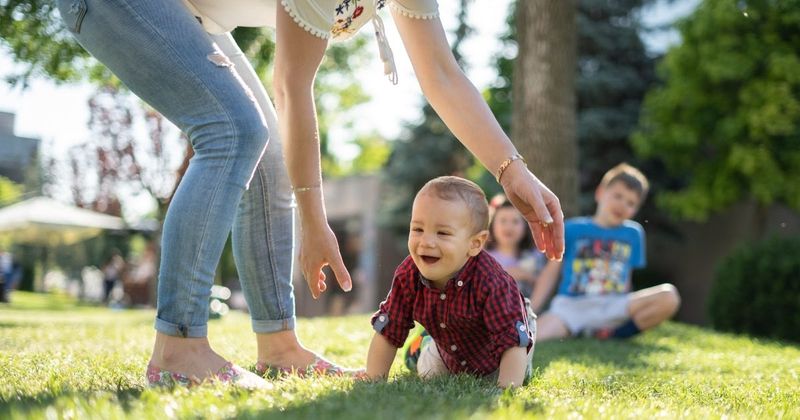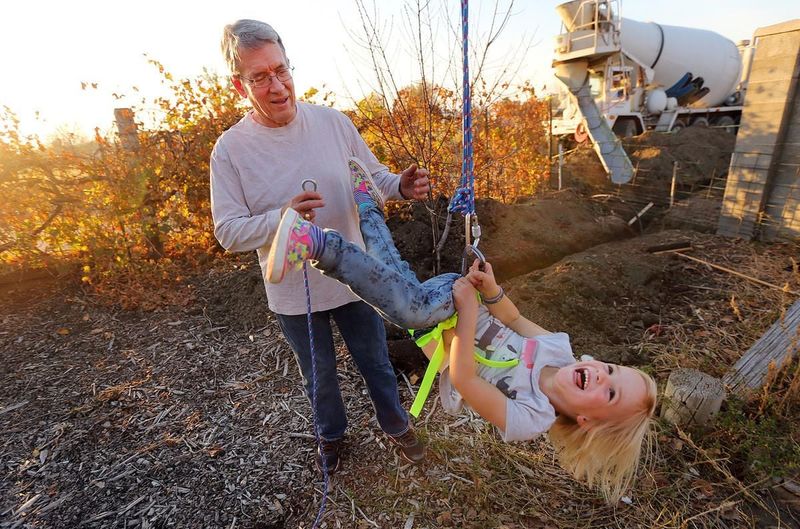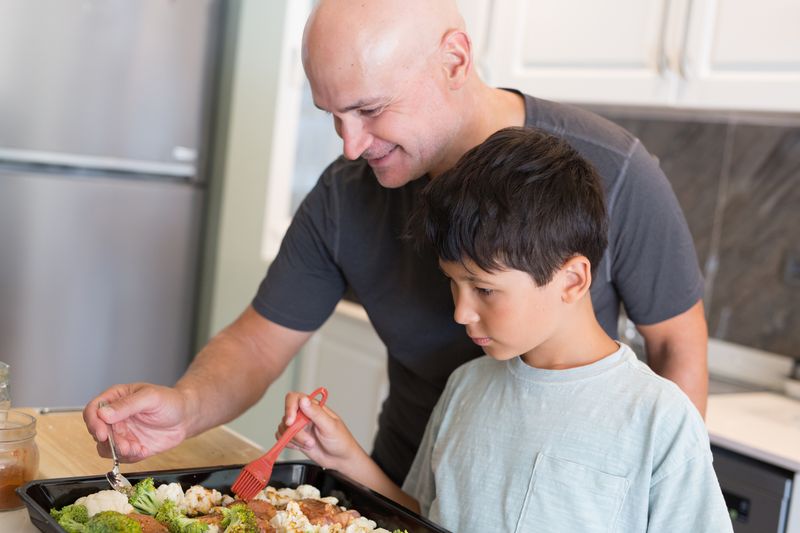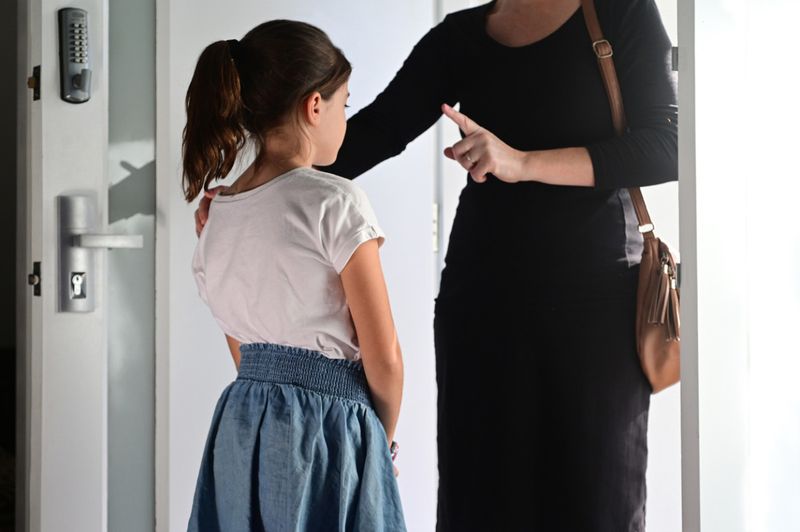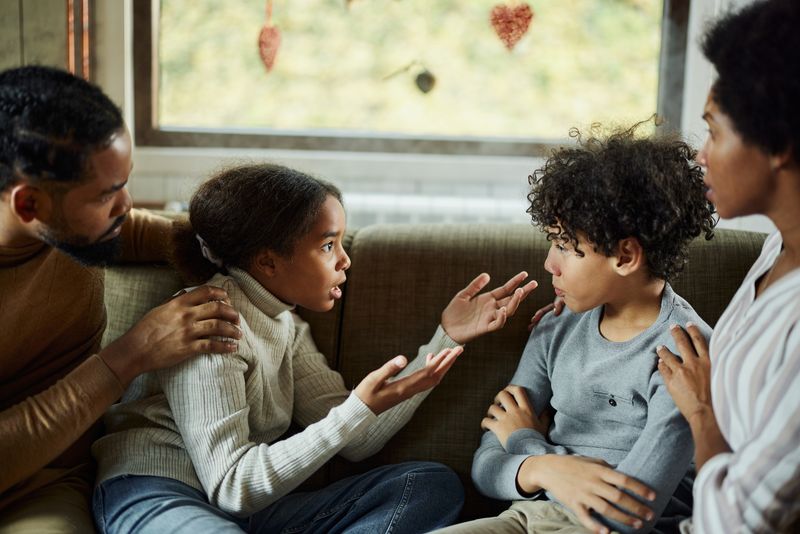Let’s be real: no one wakes up saying, “I think I’ll mess up my kid today.” But it sneaks in—this quiet, exhausting drive to get it all right. You want your child to grow up strong, safe, and successful, but sometimes that good intention builds a wall between you and the kid you swore you’d never lose touch with.
This isn’t a lecture—more like a flashlight. I’m walking the same road beside you, stumbling over my own worries and second-guessing every bedtime, every missed soccer tryout, every time I raised my voice. If you’ve ever wondered, “Is it too much?”—this is for you.
Aqui estão 17 red flags psychologists see in parents who care deeply, but might be pushing too hard without realizing it.
1. Overprotection: The Bubble-Wrap Trap
Do you micromanage every minor scrape and stumble? You’re not alone. This feels loving in the moment, but here’s the kicker: you’re also shadowboxing their ability to handle life’s sharp edges.
Shielding kids from every bump in the road can plant a quiet panic in their hearts: “What if I can’t handle this on my own?”
Letting them face age-appropriate challenges builds actual grit. It’s a messy, uncomfortable act of love—the kind that says, “I trust that you’ll figure it out, and I’ll be here if you don’t.” No one wins when we swap their childhood for a glass case.
2. The Boundary Blur
The rules keep changing, and everyone can feel it. Kids learn quickly when boundaries are foggy—sometimes bedtime means 8:00, sometimes it stretches to whenever Netflix ends. It’s like living in a house where the walls move every night.
I’ve seen parents try to be “cool,” thinking flexibility equals love. But children need a sense of where their power ends and comfort begins. Without clear boundaries, anxiety sneaks in.
Security doesn’t come from endless negotiation. It comes from knowing someone cares enough to say, “Here’s what’s okay, and here’s what isn’t.” Even when they roll their eyes, deep down, it helps them feel safe.
3. Discipline Roulette
One day it’s a harsh timeout, next day it’s a shrug. Ever yank privileges for a small mistake, then let a big one slide? That’s discipline roulette, and it leaves kids dizzy.
My friend once grounded her daughter for a C, but ignored a week of missed chores. The inconsistency didn’t teach consequences, just suspicion: “Will Mom even notice this time?”
Predictable discipline isn’t about being a robot. It’s about showing your kid the world has rules, and you’re not playing favorites. That’s how they learn fairness—not by rolling the dice every time they mess up.
4. Helicopter Mode: All Systems Go
Hovering feels like love, but it’s also a way of saying, “I don’t trust you to try.” The child gets the message: the world is dangerous, and they can’t handle it alone.
I watched a mom at the park once—never sat down, eyes glued to her son, intercepting every fall before it happened. He looked over his shoulder more than he looked forward. That’s not freedom; that’s constant surveillance.
If we want resilient kids, we have to give them space. Not just to fall, but to get back up. The secret? Courage isn’t caught, it’s earned—one scraped knee at a time.
5. White-Knuckle Letting Go
Handing over the car keys, watching them walk into high school, letting them go on a trip alone—each moment stretches your heart in new ways. But gripping tighter doesn’t keep them safe; it just teaches them to hide what matters.
A friend’s mom tracked every move through her phone. That friend didn’t stop what she was doing, she just got better at lying about it. Trust starts with releasing control, not doubling down on it.
Letting go is an act of faith, not fear. It’s saying, “I raised you for this,” even if your stomach twists every step of the way.
6. Doing for, Not With
You bake the cupcakes, glue the poster, pick out the outfit—they just show up. Doing everything for them might look like devotion, but it’s actually robbing them of small victories.
Kids don’t remember the perfect project; they remember feeling capable.
The honest truth? Your help sometimes says, “I don’t think you can.” Instead, try “Let’s mess this up together,” and watch their confidence grow, even if the result isn’t ribbon-worthy.
7. The Risk Freeze
Did you ever flinch at the sight of your kid climbing too high or running too fast? That’s the risk freeze. It sneaks in with good intentions but leaves kids stuck on the sidelines.
My own son once wanted to try skateboarding. I nearly said no, picturing broken bones. But when I watched him wobble, fall, and get up laughing, I realized my nerves were teaching him to be scared, not skillful.
Letting kids take measured risks is how they learn where their limits really are. Safety matters, but so does the thrill of a small, earned victory.
8. Independence On Hold
If a child never gets a turn to struggle, they never get a chance to shine. Holding off on independence isn’t protection—it’s a subtle way of saying, “You’re not ready.”
I knew a mom who packed her daughter’s bag until middle school, choosing her clothes, checking her homework. The kid looked polished, but she wilted when alone—scared to make even small choices.
Empowerment starts with tiny steps. Let them tie the laces, miss the bus, or forget the umbrella. The world gets less scary the more they practice living in it.
9. The Critic’s Voice
“That’s nice, but you colored outside the lines.” Sound familiar? Constant criticism doesn’t toughen kids up; it chips away at their spirit.
Kids start to believe your voice is the truth about who they are.
A little correction is healthy, but it shouldn’t drown out encouragement. If all they hear is what’s wrong, they’ll stop reaching for what could be right.
10. Achievement Pressure Cooker
Did you ever blink and realize your praise only landed when your kid succeeded? This turns every day into a test, not just at school but at home, too.
A family’s fridge becomes a shrine to trophies, but not to effort or joy. Kids who only feel valued for winning stop trying when it gets hard—they’d rather quit than risk your disappointment.
Celebrate process, persistence, and the courage to try. Your love isn’t a scoreboard, and neither is their worth.
11. Emotional Dismissal
“Stop crying. It’s not a big deal.” Ever let those words slip out, thinking they’d toughen your kid up? It might seem harmless, but it tells children their feelings are inconvenient.
Pushing emotions aside doesn’t build strength—it teaches shame.
Real resilience grows from feeling seen, not silenced. Make room for the messy stuff, and they’ll learn to trust you with what hurts.
12. The Comparer’s Curse
Nothing stings like finding out you’re not measuring up—even if it’s just to your parent’s friend’s kid. The comparer’s curse sneaks in with the best intentions, hoping to motivate. But it usually just burns.
A girl in my daughter’s class told me she hated piano because her mom kept saying, “Look how well Emily plays.” She stopped enjoying music and started dreading lessons.
Comparisons steal joy and fuel resentment. Let them chase their own spotlight, not someone else’s reflection.
13. Micromanaging Every Minute
Every hour scheduled, every afternoon accounted for—it’s the curse of the over-planned childhood. If you’ve ever felt like your kid needs a personal assistant just to keep up, you know what I mean.
With this, kids never have time to just be bored. Turns out, boredom isn’t useless; it’s where curiosity grows and personalities bloom.
A blank space on the calendar says, “You get to decide.” Release some control, and you might be surprised what your child shows you.
14. Avoiding Apologies
Apologies are tough. Maybe you worry that saying sorry undermines your authority. But here’s the twist—refusing to apologize teaches your kid that adults don’t have to own up when they’re wrong.
I once snapped at my daughter for spilling juice. I wanted to brush past it, but her small voice asked, “Are you mad at me or the mess?” When I finally apologized, her eyes softened. She learned that it’s okay to admit mistakes.
Modeling humility is how we teach healing. Your power is never in being perfect, but in being honest.
15. Ignoring the Little Joys
It’s easy to overlook the small stuff—the joke they tell, the doodle they’re proud of—when you’re stuck on autopilot. But kids know when their joy isn’t noticed.
My neighbor’s son built a ship out of cereal boxes. His mom barely looked up from her work call. That moment stuckwith me, not because it was dramatic, but because it quietly said, “What matters to you isn’t important to me.”
Joy is built in the margins. Celebrate the small things, and you give your child a reason to keep sharing them with you.
16. Fixer vs. Listener
Ever interrupted your child mid-sentence with a solution? That’s the fixer reflex in action. We want to spare them pain, but they just want someone to listen.
My daughter once cried after a fight with her best friend. I jumped in with ways to fix it, but she just wanted me to hear her. The advice felt like a wall, not a bridge.
Sometimes the best gift is to sit with their feelings, not solve them. Kids need to know their emotions are safe with you, even when you can’t make them disappear.
17. Forgetting Your Own Oxygen Mask
You can’t pour from an empty cup. Parents push hard and forget their own limits—skipping sleep, dropping friendships, running on caffeine and guilt.
I spent months in survival mode, thinking my exhaustion was noble. But my kids felt my distance, not my devotion. Burnout isn’t a badge—it’s a warning sign.
Taking care of yourself is part of taking care of them. Refill your own oxygen mask, and you’ll model real resilience—the kind that lasts long after childhood is over.


